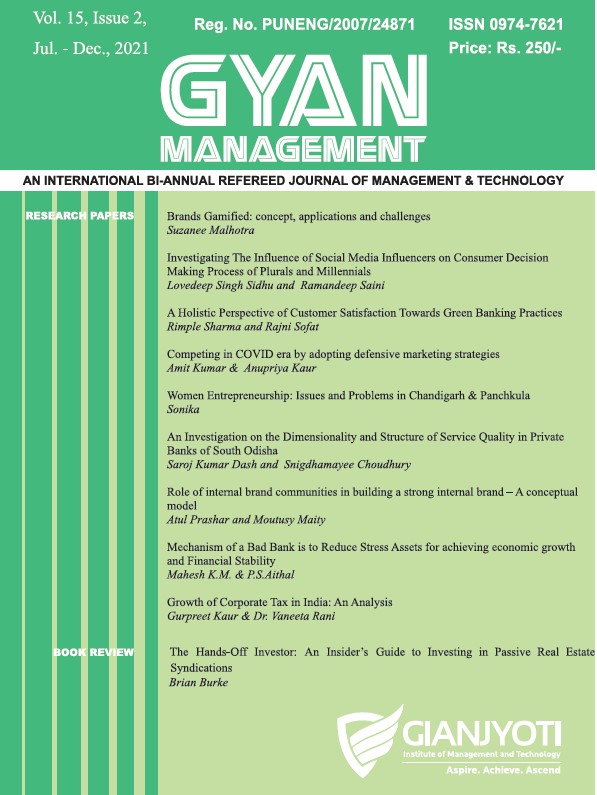Abrogation of Article 370: The Symbol of National Integrity
DOI:
https://doi.org/10.48165/gmj.2022.17.2.1Keywords:
Article 370, Abrogation, Transport, communications, Symbol, Nation, Unity and integrityAbstract
A few specific privileges provided to citizens of the Indian state of Jammu and Kashmir were recently abolished by the Indian government. Under Articles 370 and 35A of the Constitution, these rights were provisionally conferred. The Indian government placed some limitations on travel and communication in the Kashmir valley because it anticipates that this step may spark violent protests in the state. Pakistan has spearheaded a defamation campaign against India even though these prohibitions have increasingly been loosened. Over this action, it has even threatened a nuclear exchange. The prime minister of India Mr Narendra Modi said that more than 70,000 lives have been lost over the past thirty years as a result of the particular privileges that the people of Jammu and Kashmir have, which has led to a sense of difference that has been exploited by forces opposed to India’s unity. The neighbourhood was not getting any closer to peace by maintaining the current quo. Hopefully, the elimination of these articles will result in a stronger sense of national integration. Therefore in view of the above statements this dissertation paper is being prepared to study and spread the truth to the all citizens of India that abrogation of article has ended all kinds of privileges and special treatments and has paved the way to the national integration of India
Downloads
References
Asai, Sehla (2010), “The Jammu and Kashmir State Subjects Controversy of 2004”, Drexel Law Review, 2: 537–555 Chowdery, Rekha (2015), Jammu and Kashmir: Politics of Identity and Separatism, Routledge, ISBN 978-1-317- 41405-6
Cotrell, Jil (2013), “Kashmir: The vanishing autonomy”, in Yash Ghai; Sophia Woodman (eds.), Practising Self Government: A Comparative Study of Autonomous Regions, Cambridge University Press, pp. 163– 199, doi:10.1017/CBO9781139088206.006, ISBN 978- 1-107-29235-2
D. Gupta, Joti Bhusan (1968), Jammu and Kashmir, Springer (2012 reprint), ISBN 978-94-011-9231-6 Divan, Paras (1953), “Kashmir and the Indian Union: The
Legal Position”, The International and Comparative Law Quarterly, Cambridge University Press, 2 (3): 333–353, doi:10.1093/iclqaj/2.3.333, JSTOR 755438
J., Christophe (2009). Hindu Nationalism: A Reader. Princeton University Press. ISBN 978-1-40082-8036. Jugota, S.P. (1960), “Development of Constitutional Relations between Jammu and Kashmir and India, 1950–60”, Journal of the Indian Law Institute, 2 (4): 519–538, JSTOR 43949608
Hasan, Khalid Wasim (2009), History Revisited: Narratives on Political and Constitutional Changes in Kashmir (1947–1990) (PDF), Bangalore: The Institute for Social and Economic Change, ISBN 978-81-7791-189-3
Kumara, Ashtosh (2005), “The Constitutional and Legal Routes”, in Samaddar, Ranabir (ed.), The Politics of Autonomy: Indian Experiences, SAGE Publications, pp. 93–113, ISBN 9780761934530
Kumar, Virendra (2004), “The Jammu and Kashmir Permanent Residents (Disqualification) Bill 2004: A Constitutional Perspective”, Journal of the Indian Law Institute, 46 (4): 534–553, JSTOR 43951935




